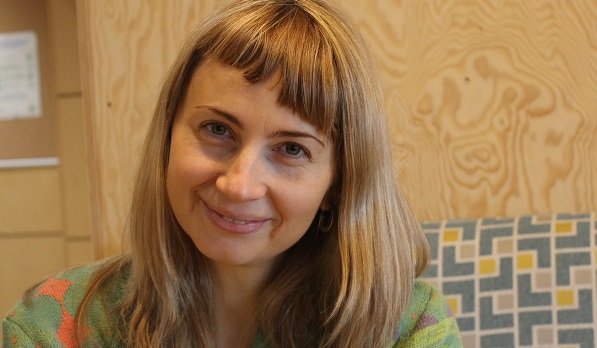Interview with Izabella Majcher, ECRE Senior Legal Officer – Return and Detention
ECRE is an alliance of 104 NGOs across 41 European countries and its diverse membership ranges from large INGOs with global presence to small organisations of dedicated activists. Members’ work covers the full circle of displacement from zones of conflict, to the dangerous routes and arrivals in Europe, to long-term inclusion in European societies, with their activities including humanitarian relief, social service provision, legal assistance, litigation, monitoring policy and law, advocacy and campaigning. We decided to share some of their voices.
How did you become involved in protecting the human rights of displaced people?
For me I guess it wasn’t a question a single big event but a gradual awakening to the extreme inequality of our societies. I saw it when I was volunteering in Ecuador and Vietnam but it is evident also in Europe and in Geneva where my professional path took shape. Some people are excluded and discriminated robbed of the fundamental freedoms and rights that we take for granted and it’s a question of hazard, being born a little further North or South. We simply jump on a hundred Euro Easy jet flight to any destination we wish while asylum seekers and refugees are paying thousands of Euros to cross a border often at high risk. The fundamental paradox is that their undocumented status is a product of our laws – in other words we made sure they had no or very limited legal options of seeking protection and then claimed them criminals for seeking alternatives.
I guess you could say I engaged in the battle of refugee and migrants rights on three different levels – at work doing research and advocacy on detention, in academia doing a PhD on EU return policies and as a volunteer providing legal assistance to asylum seekers and visiting immigration detention facilities.
What is the single most inspiring experience of your career?
When dealing with detention of people seeking protection in Europe there are very few ‘success stories’. Realistically, given the asymmetrical power relationship between governments and NGOs, the best we can typically achieve is to prevent the most severe cases of abuse and to ensure provision of basic medical health and humane conditions of detention. A key and universal dilemma that arises from the asymmetry of power between NGOs and governments is how to strike the delicate balance of engagement – we need the dialogue to make sure we can to the maximum extent positively influence their decisions but at the same time we cannot in that working relationship compromise too much or end up legitimizing bad policies to stay in the room so to speak.
However, it has been deeply inspiring to work alongside a diverse group of people consisting of activists, academics and NGO staff with so many different skills and expertise’s on domestic and international policies, laws and procedures. Different people, bringing different experiences and competences but united in the same struggle to protect the fundamental rights of refugees and migrants.
What is your main professional motivation?
I probably shouldn’t say this but to be honest there hasn’t for years been a defined line separating work and private life for me. I mean I am privileged to work on issues that I care deeply about and between being a professional in NGOs working on human rights issues, volunteering to assist people whose rights are ignored or violated, and writing a PhD on the same topics… Let’s just say barriers melt down. My conviction is what drives my work and my work is what drives my conviction.
Photo: ECRE
This article appeared in the ECRE Weekly Bulletin . You can subscribe to the Weekly Bulletin here.

